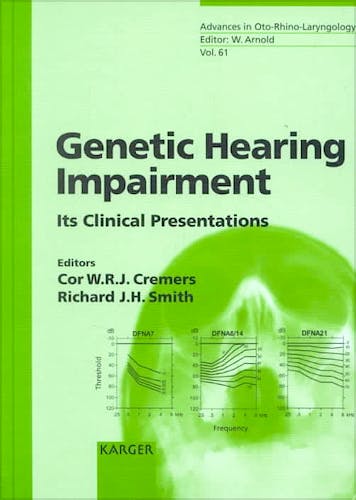

No hay productos en el carrito



Genetic Hearing Impairment
Cremer
1ª Edición Junio 2002
Inglés
null pags
1200 gr
null x null x null cm
ISBN 9783805574495
Editorial KARGER
Human Genetics
'The clinical characteristics of the various abnormalities are clearly described,
assisted by illustrations, tables and pedigrees. As genetic hearing defects
are also part of some endocrine diseases ... this book is also of interest to
pediatric endocrinologists in addition to ENT specialists and geneticists.'
Journal of Pediatric Endocrinology and Metabolism
Presenting the phenotype of genetic non-syndromic and the most frequent syndromic types of hearing impairment
A decade of innovative findings in the research of molecular biology of hearing and deafness is reflected in this volume. The genetic causes for many types of syndromic and non-syndromic deafness are identified and genotypic-phenotypic relationships are explored. Although the type and degree of deafness caused by mutations in different genes significantly overlap, relatively unique age-related audiometric profiles are also emerging. For example, the audioprofile of DFNA1 and DFNA6–14 is a low-frequency sensorineural hearing loss; with DFNA8–14 it is a mid-frequency sensorineural hearing loss, and with DFNA2, DFNA5 and DFNA20–26 it is a high-frequency progressive hearing loss. Recognizing such audioprofiles can facilitate well-guided decision-making in clinical practice and can direct genetic testing for deafness. With an accurate genetic diagnosis, prognostic information can be provided to patients and their families. In the future, gene-specific habilitation options may also become available.
To keep up to date with new clinical standards of diagnosing genetic hearing
impairment, this book is indispensable reading to otorhinolaryngologists and
audiologists.
© 2025 Axón Librería S.L.
2.149.0